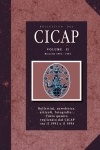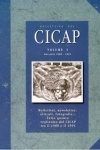The following is an opinion essay that highlights the increasing consolidation of media outlets in the hands of a few media conglomerates. It is written by Paul Kurtz, Professor Emeritus of Philosophy at the State University of New York at Buffalo. Kurtz urges a grassroots citizen movement to open the media to other points of view.
Kurtz is founder and President of Prometheus Books, an independent publisher. He is also Editor-In-Chief of FREE INQUIRY magazine and Chair of the Committee for the Scientific Investigation of Claims of the Paranormal (CSICOP.)
Kurtz is author or editor of thirty books and his opinion articles have appeared most recently in the Los Angeles Times, Indianapolis News, Sacramento Bee, Pittsburgh Post-Gazette and Las Vegas Review.
____________________________________________________________________
Citizens of our democracy should be concerned about the increasing trend toward media concentration. This applies to television, cable, and radio networks, movie studios, newspaper chains, magazines, and book publishers.
Democracy presupposes a free market of ideas. The concentration of the media in fewer hands has narrowed the opportunity for citizens to express alternative points of view. In point of fact, media conglomerates have emerged as the most powerful voice in society --- and we have become a mediacracy.
The recent domination of stories in the news regarding allegations about improper actions by President Bill Clinton is illustrative of the inordinate power of the mass media. Whatever the outcome of Kenneth Starr's investigations of the Clinton presidency, the media's sensationalist scandal- mongering should be viewed in this broader context.
In 1997 a record $1 trillion of mergers of corporations in manufacturing, aerospace, transportation, banking, finance, retail, and service industries took place at a pace almost unrivaled in history. The beginning of 1998 sees the same trend continuing. Indeed, not since the great number of mergers in the steel, oil, and automobile industries at the beginning of the twentieth century has the shape of America been so changed.
What is dangerous to democracy is when the range of ideas are dominated primarily by consideration of profit margins. The United States is not alone in this regard.
It is estimated that the newspapers that Rupert Murdoch News Corporation owns or controls in the United Kingdom have a circulation reaching 40%, and this says nothing of his control of television and satellite transmission. His influence on the media in the United States is growing. It is no secret that as an owner he is all too willing to inflict his own biased views on the editorial content of his properties. Recently Bertelsmann AG bought Random House, making the German conglomerate the most influential player in American publishing.
The Telecommunications Act of 1996 makes it possible for one company to dominate 35% of a national TV market; and on the local level to own 40% of radio stations. Today some seven or eight huge media conglomerates dominate the moulding of public opinion. These include Time-Warner, Disney ABC, News Corporation, Viacom-Paramount, Bertelsmann AG, TCI, and GE/NBC.
What guarantee do we have that the powerful corporations that now control the American media will allow their news departments independence and that they will not intervene in the editorial content of their publishing companies? Has not the current powerful mediacracy, in emphasizing entertainment, already undermined the public's right to know? This trend is especially disturbing for the future of democracy when it reshapes the entire broadcast and publishing industries. It is surprising that there is so little opposition to the formation of these oligopolies.
I would suggest three possible remedies: (1) Apply the anti-trust laws with special vigor to limit acquisitions and mergers in the realm of media, including the publishing industry. It is not price competition, *but the competition in ideas that is so crucial to a democratic society.* (2) Repeal the Telecommunications Act of 1996. Little did its proponents realize what would happen. (3) Return the original intent of the "Fairness Doctrine" to TV and radio. These stations are licensed by the government; they have a responsibility to the public interest to insure that on controversial issues of public concern a variety of points of view be presented.
I submit that we need to mount a citizens' movement in America to challenge the dominating view of the media oligarchy. We need a new grass-roots movement to open the media to other points of view.
___________________
Paul Kurtz is President of Prometheus Books, an independent publisher; and Professor of Philosophy at SUNY at Buffalo. He is also Editor-in-Chief of Free
Inquiry magazine and Chairman of the Committee for the Scientific Investigation of Claims of the Paranormal.








